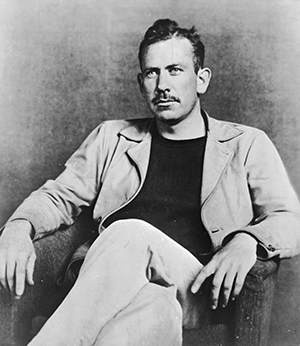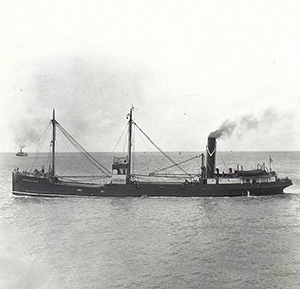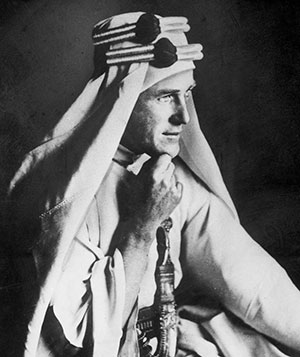December 20
Published in On this Day listing- 2004 Around £26.5 million was stolen from the headquarters of the Northern Bank, Belfast, allegedly by the IRA. It was the biggest bank robbery in Irish history.
- 1968 John Steinbeck (66), American novelist and winner of the Nobel Prize for Literature (1962), died. In his early days, Steinbeck spent much of his time on the ranch of his maternal grandfather, Sam Hamilton, whom he described as ‘a courteous big man, with a sweet accent’. Sam was a native of Ballykelly, Co. Derry, who had emigrated at the height of the Famine, married and settled in California. He spoke little about his Irish roots and never returned to Ireland. Steinbeck eventually made the trip himself, along with his wife, in the summer of 1952, to visit the family of Sam’s brother, William, who farmed near Ballykelly. He was not impressed with Derry City, finding it ‘dour and unfriendly’, and likewise his hotel. And for a man who was fond of his drink, he was far from pleased with the strict licensing laws. His quest proved fruitless. Visiting the home place through the help of a friendly taxi man, he was informed that William’s family, two sisters and a brother who never married, were deceased, the last—Elizabeth ‘Minnie’ Hamilton, a lady ‘who was always reading’—having died, aged 84, just two years earlier. He ended his account, published as ‘I Go Back To Ireland’ in Collier’s magazine a few months later, on a poignant note. At their resting place in Ballykelly churchyard, the elderly sexton presented him with a rose. ‘I took it. And that’s the seat of my culture and the origin of my being and the soil of my background, the one full-blown evidence of a thousand years of family. I have it pressed in a book.’
- 1968 John Steinbeck (66), American author—notably of The Grapes of Wrath (1939)—and winner of the Nobel Prize in Literature (1962), died.
- 1961 Robert McGladdery (26) from Newry, Co. Down, was hanged in Belfast’s Crumlin Road prison for the murder of Pearl Gamble (19), also from Newry, the last judicial execution in Northern Ireland. The last judicial execution in the Republic of Ireland occurred seven years previously, in April 1954, when Michael Manning (25) from Limerick was hanged in Mountjoy jail for the murder of an elderly nurse.
- 1909 The Volta Cinema, Ireland’s first custom-built cinema, opened in Mary Street, Dublin. The manager was James Joyce.
- 1858 Dr Kuno Meyer, Celtic scholar and founder of the School of Irish Learning (1903), forerunner of the School of Celtic Studies at the Dublin Institute for Advanced Studies (1940), was born in Hamburg. In 1915, during the wave of anti-German hysteria following the outbreak of the First World War, Dublin’s city fathers struck out his name from the roll of Freemen of the City. The honour was restored in 1920.
- 1812 Children’s and household tales, the first collection of folk tales by the brothers Jacob and Wilhelm Grimm, was published. Their Irish elf tales, largely a translation of Fairy legends and traditions of the south of Ireland by Corkman Thomas Crofton Croker, appeared in 1826.
- 1915 Noel Browne, doctor and politician, whose controversial Mother and Child Scheme was a key factor in bringing down the first inter-party government (1948–51) of John A. Costello, born in Waterford.

Above: John Steinbeck—in 1952 he paid a visit to the home place of his forebears in Ballykelly, Co Derry.
'


















